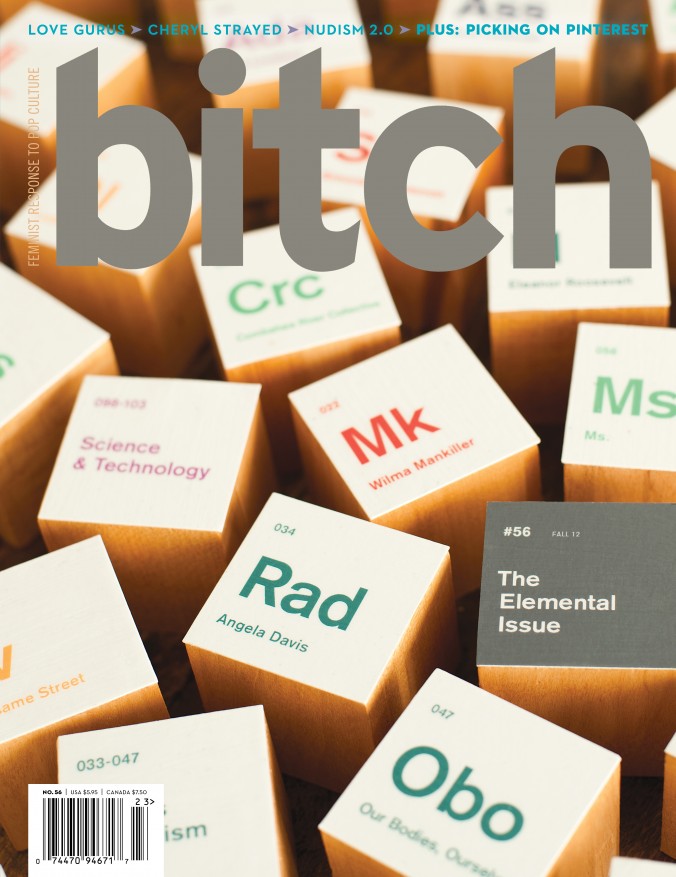
NBC recently premiered a string of tepid sitcoms, desperate for a ratings success. Among their fall lineup is “The New Normal,” a standard antiseptic studio sitcom about a gay male couple (read: white, upper middle class) in Los Angeles who, on their quest to start a family, find a young surrogate mother fresh out of Ohio to have their baby. Created by Ryan Murphy (of Glee fame), “The New Normal” attempts to provide an entertaining look at gay parenting, bigotry and in vitro fertilization.
Meanwhile, in academia, queer and gender theorist J. Jack Halberstam recently published a new book titled “Gaga Feminism: Sex, Gender and the End of Normal.” Halberstam intends to dismiss the ol’ anatomy politics and proposes new ways of talking about bodies, pleasure and labor because, in fact, there is no such thing as normal.
How do you reconcile these two conceptions of “normal” — one spawned in academia and the other from the brains of TV studio executives? Andi Zeisler, co-founder and creative director of Bitch Magazine, had a few pointers when she spoke last month at SAIC’s Columbus Auditorium, as part of the Visiting Artists Program (VAP) roster this semester. Her suggestions included engaging in a race and class analysis of TV shows to draw out larger conclusions because, she pointed out, it’s probable mainstream outlets won’t. Also, avoid echo chambers and strive to serve a larger purpose with your arguments, she suggested.
Even as the founder of an influential and outspoken publication founded to provide “a feminist response to popular culture,” throughout the lecture and a subsequent roundtable organized by VAP, Zeisler did not offer absolute answers to students’ questions about the complexities of gender politics, advocating instead for more heedful, passionate writing. It was a refreshing counter approach to the facile and naïve solutions currently dominating the public conversation; only in the last six months a barrage of mass-market writers have intended to provide overarching definitions for the past, present and future of gender issues.
Most recently, in “The End of Men and the Rise of Women,” journalist Hanna Rosin argues cheerfully that economic power has shifted from men to women because of the recent decline of the manufacturing industry. In Rosin’s misandrist and simplistic universe, women have achieved greater emotional freedom thanks to the “hookup culture” they engage in nowadays and, she writes, women have also stepped up their game in the domestic violence arena, with reports of physical aggression by women on the rise. On the same day as Rosin, the polarizing Naomi Wolf published “Vagina: A New Biography,” in which she endorses orgasms as the solution to every woman’s problems and advocates reclaiming the vagina “as central to everything.”
Even as mass culture offers these neatly packaged answers to gender inequality by way of naïve books, Zeisler did assert that by speaking the common language of popular culture it is possible to get into more theoretical conversations about feminism and gender politics. As a tonic to the vapid non-fiction books, recent movies, TV shows and novels have offered more nuanced, but by no means all-encompassing, portrayals of women that cultural critics have flocked to analyze.
Take the much lauded and closely scrutinized HBO “Girls,” written and directed by Lena Dunham. At her most successful, Dunham engages in what has been called “male gaze punking” by unapologetically stripping down for her copious sex scenes, challenging the usual body standards expected of women in mass media. Most recently, the Indian American comedy writer and actress Mindy Kaling premiered “The Mindy Project” on Fox, a trite, at times amusing, 30-minute show with standard romantic comedy plots. Even as one of the only women of color to be both the protagonist and the creative force behind a network TV show, her racial identity does not take center stage, she’s just another “ordinary” woman, desperately looking for love. In “The Mindy Project,” it has been pointed out, “race is not a punchline.” Television is getting smarter, Zeisler said, but it is still part of a system that needs to be critiqued.
Bitch Magazine has strived to provide more analysis than reporting on relevant issues, advocating for media literacy and combating a monolithic opinion of what feminists do. It was co-founded by Zeisler with the purpose of bridging a gap between academic writers and mainstream magazines that focus on producing content for women. When it is still common knowledge that a self-congratulatory publication like the New York Times remains wary of hiring women’s studies majors and continues to publish the majority of stories related to women in the “Style” section, Zeisler pointed out, complicated questions about popular culture must continue to be raised.







